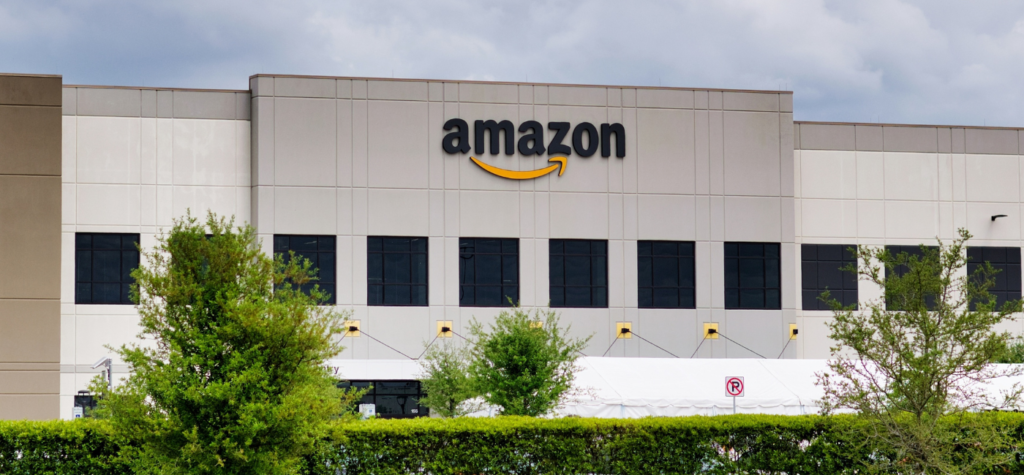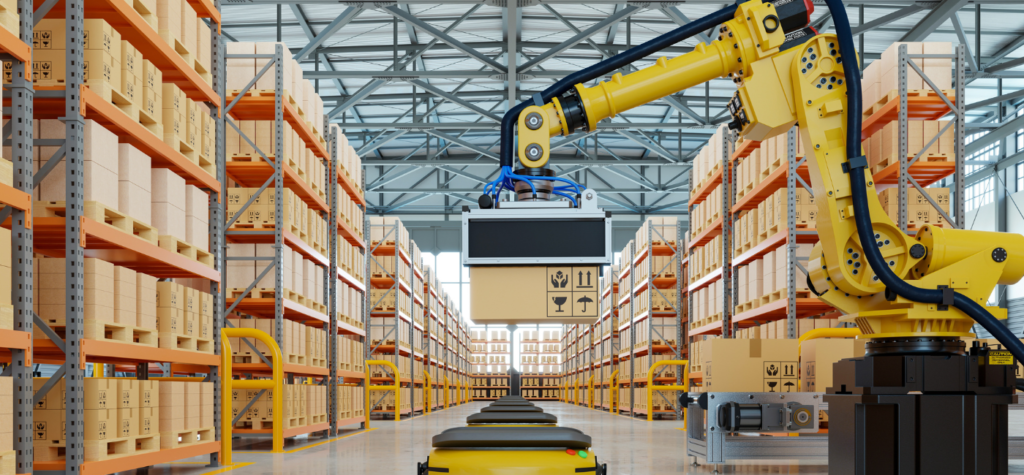Discover 14 Types of Warehouses: The Ultimate E-commerce Guide
Warehousing is an integral part of any commercial business. As the trend of online shopping continues to increase, approximately 27% of the global population has become a digital buyer. This causes processes like inventory management, packaging, and product shipping to keep becoming complex.

Types Of Warehouses
Warehouses are critical for efficient inventory management and rapid order processing. In what follows, we’ll look at 14 different warehouse types and how they could influence your company.
Fulfilment Centres
Warehouses are often confused with fulfilment centres, but to your surprise, both of these terms are different. Warehouses serve as storage facilities in the UK. Fulfilment centres are responsible for warehousing, selecting, packing, and shipping your things.
So, what is the distinguishing feature of fulfilment centres? It is their ability to process large volumes of orders quickly and deliver them. This feature makes it the best choice if you run an e-commerce business in high demand and with fast order fulfilment. Some highlighted features related to Fulfilment centres are:
- Their cost is neither too high nor too low because of the tech infrastructure.
- It is suitable for businesses requiring fast and speedy order fulfilment.
- It is a perfect warehouse for E-commerce businesses and subscription box Services.
Smart Inventories
Smart inventories, also known as smart warehouses, are equipped with smart technology like AI, robots, and IoT. A study estimates that over 4 million commercial robots will be installed in different warehouses by 2025. This is being done because this machine-based system has been adapted to perform its functions effectively. This setup has a great advantage because it allows the automatic processing of products like automatic sorting, picking, and packing. In the UK, smart inventories are prevalent in retail for managing stock levels and enhancing customer experience, in logistics for improving supply chain efficiency, in healthcare for managing medical supplies, and in manufacturing for optimising production processes. These systems are suitable for businesses of all sizes, from small boutique stores and local warehouses to large retail chains, industrial plants, and e-commerce companies.
Smart warehouses are the ideal solution for companies that want to lead the way in tech-driven automation and real-time data analytics. Some highlighted features of smart warehouses are:
- It reduces the employment costs to a larger extent.
- Undoubtedly, this setup may cost you a lot of money, but later in time, cost reduction is seen.
- It provides fast, efficient, and error-free order fulfilment.
Private Warehouses
Private warehouses refer to the private properties owned by a single business. These warehouses and their operations, including security, transport, storage, etc, are looked after by the company itself. Since it is owned by one entity, it can be highly customised according to the needs of the specific business setup. The U.S. Bureau of Labor Statistics reports that as of 2018, there were 18,182 private storage establishments, an increase from 15,203 in 2008.
Usually, very large companies or enterprises prefer having private warehouses because of their immense inventory and special operational requirements. According to the UK Warehousing Association (UKWA), the UK has approximately 424 million square feet of warehousing space, with private warehouses constituting a significant portion. The demand for warehousing space has surged, particularly due to the growth of e-commerce, which saw a 46% increase in online sales in 2020 alone. Some key features of private warehouses are:
- It costs a significant amount of money to construct and maintain a whole private warehouse.
- It is Ideal for sizable companies with particular operational needs.
- Large manufacturers and several multinational companies use it.
Public Warehouses
Public warehouses are shared spaces mostly owned by third-party logistics companies. They provide storage facilities on rent for a short period of time. The main purpose of public warehouses is to provide a flexible storage solution without costing a pile of money. However, special facilities might not be provided. As of recent data, the UK warehousing market comprises over 424 million square feet of space, with public warehouses accounting for a significant share. The key features of public warehouses are given below:
- These warehouses are an amazing option for small businesses, as well as seasonal products like Christmas toys.
- The cost estimate of public warehouses is quite low based on the size of your product and the time period.
- It is quite popular among businesses which have just started.
Bonded Warehouses
Bonded warehouses are monitored by customs authorities and provide secure storage for imported commodities prior to payment of customs charges. It allows people to postpone payments until the goods are sold. But all of this happens under strict customs regulations. As of recent statistics, the UK has a robust network of bonded warehouses, strategically located near major ports like Felixstowe, Southampton, and Dover, as well as key airports including Heathrow and Gatwick.
These warehouses are quite beneficial for efficiently managing cash flow, especially for businesses that trade globally. The important features of bonded warehouses are:
- The importance of bonded warehouses remains significant as exports have increased by 400% over the past 25 years.
- It is a necessity for goods which are sold internationally.
- Multiple import-export business companies and multinational corporations make use of bonded warehouses.
Cooperative Warehouses
Out of many other warehouse types, cooperative warehouses in the UK are unique because they are shared among multiple businesses. Multiple business entries collaborate with each other to run and maintain these warehouses. They provide cost-sharing benefits, reduced investment, and increased bargaining leverage.
A proper agreement is made between different organisations before sharing warehouses. The key features of cooperative warehouses are:
- It is cost-effective because the total expenses are shared among multiple businesses.
- It can prevent individual business growth.
- It’s popular and widely used among local businesses and small newly initiated enterprises.
FDA Certified Warehouses
FDA-certified warehouses deal with the storage of things like food, drugs, medical devices, and other regulated products in the UK. Their main task is to maintain the FDA standards while these products are being stored. Some important facts about FDA-certified warehouses are:
- They are essential for businesses that deal with FDA-regulated products.
- They must provide proper storage and maintenance conditions that meet the FDA requirements.
- These are used mostly by pharmaceutical companies and food manufacturers.
Distribution Centres
Distribution centres facilitate the movement of commodities from suppliers to end customers in the UK. They are designed in such a way that quick sorting and distribution of products to retailers or consumers is made possible. The Boeing Everett Factory, located in Washington, is the world’s largest warehouse in terms of usable volume. Some important facts about distribution centres are listed below:
- They are mostly used by businesses having many retail outlets.
- The costing is done moderately.
- They are an important link in the supply chain.
- The growth rate and potential are extremely high.
Government-Owned Warehouses
These warehouses in the UK are thoroughly owned by the government and used only to store products under government supervision. If the warehouse space is not fully utilised, then the government is authorised to lend some of its parts to the private sector. Here is a list of some fascinating facts about the government-owned warehouses:
- The profit made from this warehousing is usually used by the government.
- Very little tech-related stuff is used.
- They are mainly used by agricultural businesses or for manufacturing or construction.
Reverse Logistics Warehouses
Reverse logistics warehouses are used to manage the returned or exchanged items. They handle things like inspection, restocking, refurbishing, recycling, or disposal in the UK. Let’s find out some highlighted features about reverse logistics warehouses.
- These warehouse types are used by e-commerce businesses that have high returns and exchanges.
- Reverse logistics is sometimes also handled by fulfilment centres.
- They have a higher growth potential.
Contract Warehouses
Contract warehouses refer to third-party establishments that provide long-term agreements and supply the customer with a variety of tailored services in the UK. Because of their long-term commitment, they can be less flexible than other types of warehouses.
- They are cost-effective and accelerate the delivery time.
- They are ideal for companies looking to gain from private warehousing without having to make a financial commitment.
Consolidation Warehouses
These warehouses work by collecting small shipments from various suppliers and converting them into larger shipments to finally send them to their destination in the UK.
- They are suitable for businesses that want to reduce costs but also have products from multiple sites.
- They are an integral part of the supply chain.
- They’re mostly used by eCommerce businesses and retailers.
Cross-Docking Warehouses
Cross-docking warehouses handle minimum storage in between by directly transferring incoming items onto departing vehicles in the UK. The key features of cross-docking warehouses are:
- They are good for businesses who want low costs and fast deliveries.
- Their cost is low because the storage time is minimal.
HAZMAT Warehouses
HAZMAT warehouses are special types of warehouses designed to handle hazardous or toxic products in the UK. They are highly secure and safe places.
- Other products like sanitiser, aerosol hairspray, and perfume can also be found here.
- Usually, businesses that deal with hazardous products use this warehousing system.
- It is popular among chemical manufacturing companies and toxic waste management companies.

Conclusion
Selecting the appropriate warehouse type is a strategic move that affects every facet of your organisation, from customer satisfaction to inventory management, in the dynamic world of eCommerce. The 14 different types of warehouse management systems covered in this guide each have special benefits and fit various business strategies and operational requirements.

